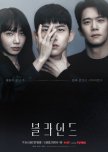
Pyramid Game: A look at society's hierarchy
The pyramid, a geometric wonder and a potent symbol, has pervaded human civilization since time immemorial. Our societal fabric is interlaced with the indomitable threads of the pyramid. Consider, if you will, the tripartite classification of society: the fortunate upper class reigning over the means of production, acting as the high priests of industry, commanding the ebb and flow of capital as a maestro conducts a symphony; the middle class, a hardy troupe of professionals, small business owners, and mid-level overseers; and, finally, the lower class toiling in less-rewarding occupations and grappling with the specter of povertyEnter the tale of "Pyramid Game," a microcosmic representation of societal stratification within the crucible of a classroom setting and beyond. The students are pitted against each other in a pursuit of popularity. The popularity contest results in a pyramid, where "Grade A" aristocracy perch triumphantly at the zenith, luxuriating in their coveted status, and "Grade F" hoi polloi languish at the nadir, bearing the full weight of ostracism and ignominy
The tale is not all doom and gloom. Amid the savage social melee, a rose blossoms between the thorns. We bear witness to the blossoming of camaraderie and tender romance between the girls. Most notably, the unions of Bona (Soo Ji) and Da In (Ja Eun), Na Eon (Ye Rim) and Ju Yeon (Eun Jung), sail billow with the winds of shared understanding and make the poignant statement that a heart can forge connections transcending the confines of class and status
Cet avis était-il utile?

Karma: Seven Joseon Notices
30 personnes ont trouvé cette critique utile
Laughter is the best medicine
We might think it odd that comedy and mystery share anything in common. Mystery excludes comedy and comedy excludes mystery. To put it more succinctly, mystery excludes raucous laughter and comedy excludes seriousness. But the playfulness of Joo Won (Hwang Dae Myung), the Korean spideypool, is never frivolous or decorative. The mystery is reconciled with comedy. The compulsion of the comedy to transform problems of cultural heritage crime into solutions adumbrates its larger purpose, which is to explore and then contain fraught social issues within a lithesome and orderly performance narrativeIt makes a spectacle out of the folly of the species. Through laughter, we behold ourselves as the subject of great folly in order that the folly might be recognized and corrected
My ratings would have been higher if not for the so-called "romance"
"Stop getting into fights. Why did you help her? Tell me, do you have a crush on her?"
Kissing, hand-holding, and acts of rescue between two men or two women are seen as "platonic" gestures devoid of sexual undertones. The desexualization of same-sex interactions stands in contrast to the hypersexualization of opposite-sex interactions, where the slightest physical contact is sensationalized and fetishized. This is a poignant illustration of the biases and prejudices that permeate our social fabric. It's a tragedy to those who think
Luckily, the possession of a sense of humor ranks high on my list of essential personal attributes. Joo Won (Hwang Dae Myung) possessed that sense of humor. I was patient with him, for although Joo Won (Hwang Dae Myung) lost his wisdom to a woman, he retained fragments and remnants of his humor
Cet avis était-il utile?

The Director Who Buys me Dinner
28 personnes ont trouvé cette critique utile
A unique holiday gift
What is Christmas without a BL? A grey and dreary experienceReleased during the festive season, the BL family could congregate at home and snuggle by the ubiquitous fireplace, with a cup of hot chocolate in hand, to savor this hidden gem, irrespective of any religious themes it possesses
From the onset, religious themes carry enormous symbolic angst
Two men, connected by a red string of fate that stretches or tangles, but never breaks, are cursed to reincarnate. The transformative power of gay love holds the key to their emancipation
The notion of religious or spiritual dogma, with its implication of a malevolent entity lurking in the shadows, evokes within me a sense of foreboding. But if we shift our attention to the men themselves, we find it amusing to ponder the possibilities and intricacies of their amorous journey
If we judge the cinematography on its own merits, we find the visual reinforcement of love to play an important role in our sympathy towards the men. The producers proved to be people well trained in showing, more than telling
Let us give the producers and actors a big round of applause!
Cet avis était-il utile?

Cette critique peut contenir des spoilers
Jibin (Yoonjae) and Seungyun (Charles) as personifications of true love
The heartbreaking psychological thriller "Blind" was a noteworthy example of implied romantic chemistry between two men, Jibin (Yoonjae) and Seungyun (Charles), whose feelings came to the surface through a precipitous movement towards tragedyEven more so than the lingering touches and eye contacts, the bitter ending was marked by a codification that signified the romance identity: https://ibb.co/68q0Qgk
*A pact suicide*
Orphaned and abused, Jibin (Yoonjae) carried the weight of his sister's sexual assault for two decades. He wanted, nay needed, the justice that the law couldn't guarantee and took matters into his own hands; doing unto his tormentors as they did unto him
*A family for a family*
Undertaking a mission for reprisal, Jibin (Yoonjae) found an ally in Seungyun (Charles). "You have me," Seungyun (Charles) told Jibin (Yoonjae), promising to never abandon him or let him "take the fall alone"
The story reached its denouement. Jibin (Yoonjae) made a final attempt to wound Moonkang before taking his leave from the world that showed him little kindness. Seungyun (Charles), devastated by the loss of his beloved, clutched a photograph of Jibin (Yoonjae) and departed from the world that lost its meaning. His suicide was driven by the passion of the exceptionally close and devoted pair of star-crossed lovers. His love for Jibin (Yoonjae) was tender; a love in its truest form
Conclusion: ship Jibin (Yoonjae) with Seungyun (Charles), Seokjin (Sunghoon) and Taecyeon (Sungjoon) for clear skin
Cet avis était-il utile?

Clever as a devil?
Jun Ho's character, Do Hyun, is a figure of heroic magnitude and energy. He deliberates, resolves and exults. His "spirit" bears up unbroken, resting on its own energy and requiring no support from anything external, not even from hope itselfHe undercuts his opponents by questioning what they had previously taken for granted. At times, he seems to be the only character who thinks, or in whom I best recognize what it feels like to think
The power to entangle and excite the audience is an observable feature of his figure. The greatness of his intellect lies in his intemperateness and ferocity
His heart is a tempestuous ocean, its "spirit" of justice/revenge the prow of a gallant ship, its sympathy the waves caressing the shoreline, and its determination the stormclouds that darken the horizon and bring the promise of cleansing rain. The "spirit" of justice/revenge is enhanced by the strain of something approaching tenderness. We see it again when Jun Ho (Do Hyun) is moved towards sympathy for those falsely accused of a crime. His will-power is not the expression of a nature irrevocably hardened or incapable of gentle emotion
What's missing? A season 2. Or a BL spin-off starring a man who will mend Jun Ho (Do Hyun)'s heart and wipe away his tears
Cet avis était-il utile?

The Guest's laid-back younger sibling
The Guest and Revenant do not configure or understand "horror" as an impulse that turns us away from encounters. Elements of "horror" such as dread and the sense of the uncanny add to their artistry and interest. They are an expansion of possibilities that give us insight into certain experiences without having to go through them ourselvesTheir "spirits" serve as instruments of metaphor and morality. They offer the best window they know on the questions of how we perceive things and how we do or do not behave on the basis of our perceptions
"There are so many evil people in this world already" (The Guest, episode 3, 10:00)
"Who's worse? A spirit or a human who caused all of this to happen?" (The Guest, episode 5, 6:15)
"Humans are scarier than spirits" (Revenant, episode 2, 14:48)
"The spirit told me that I was satisfying my own desires. This is the real me" (Revenant, episode 6, 1:01:10)
Much like The Guest, Revenant takes seriously the darkness within ourselves; a darkness that cannot be overcome with technological wizardry
The two metaphorically embody the dangers of recklessness and greed, transforming the source of fear from a distant other to something familiar in ourselves. The revulsion we feel at "horror" is a revulsion at ourselves. The terror of the possessed is supplanted by the delight of the "spirits," which can be shared by the audience. Of course, some sensitivity to the emotions of the "spirits" is obligatory
Why is Revenant The Guest's laid-back younger sibling? Because The Guest is a better, more mature story than Revenant
It is The Guest's close affinity with fear that accounts in part for its uniqueness. It evokes deeper, more personal fears in the starkest terms. Unlike Revenant, no so-called "romance" complicates it
Gendered norms and fetishized interactions between men and women are a stable ideology and field of identification for society. The stability is intentionally and heroically disrupted by The Guest
Rather than reiterate cultural conservatism, The Guest points to the wreck the gendered norms have become
To undermine any conservative sense of reassurance, the home of a priest was a conduit; one that was permeable to the outside. It was no longer isolated; it was invaded by a "spirit"
It is from this fuzziness that we see the fragility of the constructions of public and private spaces, of sexuality, of home and family, of society as a whole
We are still likely to experience anxiety and fright in Revenant. All-pervasive, able to amuse and delight, the "spirit" of Revenant is a territory for the grotesque and the sublime. I bid her Happy Haunting
Sincerely, someone who doesn't believe in "spirits"
Cet avis était-il utile?


 4
4 1
1




















